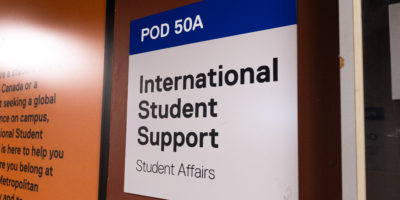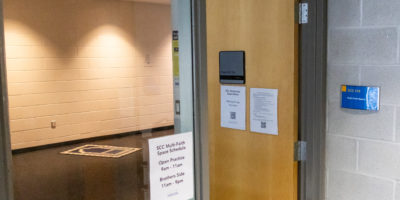By Siri Agrell
Nani Reddy has enough furniture to fill a small island.
“We’ve got enough to furnish the local library in Havana end even the national library,” he said.
Reddy, a Ryerson librarian who lived in Cuba for two years almost a decade ago, struck a deal with Ryerson to collect old office furniture and computers. He gathers the in his Toronto warehouse and sense them to Cuba to help the citizens of Havana improve their city.
Reddy also helped supervise a month-long field trip to Cuba last May for students in the faculty of community services. The students’ task were to survey residents in a district of Havana and find out what was needed to improve their living conditions.
The students compiled their results in a report and presented it to the community to help the Cubans focus their development efforts.
But this year urban and regional planning students won’t be part of the trip.
On Oct. 23, urban and regional planning faculty voted to “stand aside” from next year’s trip until a review by the office of the dean of community services is completed.
The faculty was concerned the project was raising expectations within the Cuban community without offering any solutions.
Although the review applies to the entire faculty of community services, planning students are the only ones who won’t be participating.
Reddy said his project is one example of how students are helping Cubans improve their city.
“We are not going to tell them how to do it, we’re going to give them the materials and they’re going to do it themselves,” he said.
Reddy is working with Lawrence Altrows, a professor of urban planning, to use students’ reports to apply for funding from the Canadian International Development Agency which might lead to more contact between Cuban and Canadian students.
“People in Cuba have been isolated for so long that they want contact,” Altrows said. “They want people from the outside world to know their reality.”












Leave a Reply